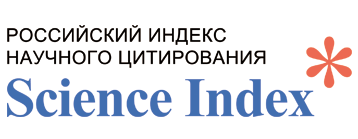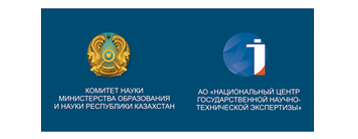THE EFFECT OF TEMPERATURE ON THE DEGREE OF PURITY OF INDIUM AT ITS ELECTROREFINING
Keywords:
indium, electrolysis, indium electrorefining, cathodic polarization, purity of indiumAbstract
The object of the study was rough indium produced in Kazakhstan. To optimize the conditions for its electrorefining, the effect of temperature on the electrodeposition of indium on a titanium electrode in chloride electrolytes was studied in this paper.From the calculated values of the activation energy of the studied process, it was established that the electroreduction of indium on titanium occurs in a mixed mode (Ea = 35.7 kJ/mol). The optimum temperature regime of the process 30-40°С was found, which promotes the formation of qualitative cathode sediments and an increase in their purity during electrolysis (99.9992%).
References
[1] Gamburg Y.D., Zangari G. Theory and Practice of Metal Electrodeposition New York: Springer, 2011. 375 p.
[2] 2.Chung Y.H., Lee C.W. Electrochemical behaviors of Indium // Journal of Electrochemical Science and Technology. 2012. Vol. 3, Is. 1. P. 1-13.
[3] Kolobov G.A. Refining of gallium and indium / G.A. Kolobov, V.V. Pavlov, Yu.V.Moseyko // Theory and practice of metallurgy. 2013. N 3-4(92-93). P. 62-67. (Russian).
[4] Kazanbaev L.A., Kozlov P.A., Kubasov V.L., Travkin V.F. Indium. Technology of its production. M.: Publishing House "Ore and Metals", 2004. 168 p. (Russian).
[5] Kochegarov V.M., Zaburdaeva F.I., Zyablova E.A. Research of electrochemical properties of indium // Jour. App. Chem. 1962. Vol. 35, N 6. P. 1376-1379.
[6] Kozin V.F., Omelchuk A.A. Kinetics and mechanism of formation of ions of univalent indium in the system In0 - In2 (SO4) 3 - In2SO4 // Non-ferrous metallurgy. 2006. N 2. P. 45-50. (Russian).
[7] Avchukir H., Burkitbaeva B.D., Rakhymbay G.S., Argimbayeva A.M., Nauryzbaev M.K. Electrodeposition of indium on titanium from chloride solutions // Conf. Proc. "Theory and Practice of Modern Electrochemical Productions". SPb., 2016. N 1. P. 44. (Russian).
[8] Rakhymbay G.S., Jumanova R.J., Burkitbaeva B.D., Argimbaeva A.M., Kurbatov A. P., Nauryzbaev M.K. Optimization of condition for electrochemical refining rough indium from chloride electrolytes // International Journal of Biology and Chemistry. 2014. Vol. 7, N 1. P. 27-32.
[9] Burkitbaeva B.D., Argimbayeva A.M., Rakhymbay G.S., Beisenova G.S., AvchukirKh., Kurbatov A.P., Nauryzbaev M.K. A study of the electrochemical behavior of indium on a titanium electrode by the cyclic voltammetry method // Chemistry Journal of Kazakhstan. 2015. N 3(51). P. 34-41. (Russian).

















